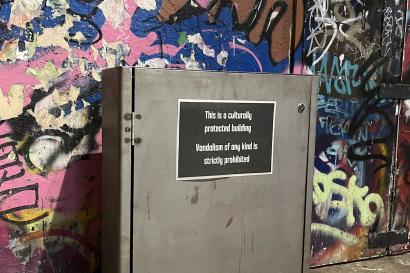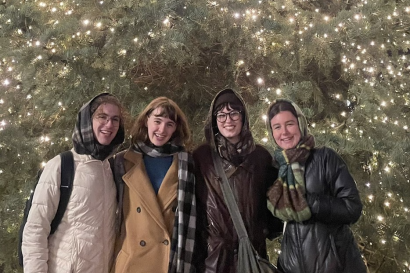
So, if you haven't ever been to Rio de Janeiro, you may link it with images of sprawling beaches, pristine waters, and pure relaxation. If you have been to Rio, you probably know that the beaches are indeed sprawling, but with people sprawled every couple of feet, the water can be pristine if you distance yourself from the Guanabara Bay, and you can relax as long as all of your personal belongings are secured.
Studying abroad, or traveling in general, involves embarking on the long journey of teasing out fact from fiction. Before you come to a place, you typically do at least a little research, but it is very hard to figure out what a place is going to be like no matter what you read. Especially if you read guides like Lonely Planet or National Geographic, you are going to get the short and sweet version of all the amazing things, with certain less amazing details glossed over. It is natural. Who wants to read about the raw sewage streaming down the mountains from favelas, or see pictures of the shore of the Guanabara Bay covered in trash? Even now I'm sure some of you will click away from this blog post, determined to find happier thoughts.
But we need to dwell on these less positive points, because they exist here, just as they exist everywhere. Life can be very comfortable when you reach a certain economic status, and there are many people who simply avoid confronting realities that exist all around them. But for the people who cannot afford to live outside of a favela, or people who can't afford to take off a day from work to go to the Copacabana beach, these realities have to be confronted.
There are beautiful, sprawling beaches with pristine waters where you can get away from everyone and simply relax, but chances are you will have to drive to them. There are beautiful neighborhoods with new buildings and working sewage systems, but you will have to pay astonishing prices to live there.
For many residents of Rio de Janeiro, life is not the non-stop party on the beach that is so often projected to the world by tourism agencies and marketing firms working for the government. Rio de Janeiro is a sprawling metropolis that features a small number of wealthy neighborhoods where life does seem to be a non-stop parties, and a far greater number of working class and impoverished neighborhoods where people work hard in all sorts of different ways to get what they need in life to survive.
Rio is not defined by any one thing, it is much more than the sum of its parts. It is the luxury apartments overlooking the beaches in Copacabana, Ipanema and Leblon, just as it is the small brick houses that climb up the mountains in the favelas of Rocinha, Vidigal and Santa Marta. It is the groups of people who congregate in country clubs and yacht clubs just as it is the homeless people that congregate around cook fires in public parks and on the sides of roads. Rio is just as much a sunny day spent on the beach as it is getting caught in a thunder storm and having to wade home through flooded streets.
I will never tire of seeing new things around the city that cause me to stop for a moment and revise some idea I had previously held about the city, and I will never stop laughing when I find myself surprised by something because of a faulty assumption I had made. Rio de Janeiro is so many things at once, and yet only a fraction of those things end up in the places where we tend to do research when planning a trip to a new place. Studying abroad is an opportunity to see past the glowing descriptions found in guidebooks and tourist brochures, and figure things out for your self in a new place.
And among discovering so many new things about this new place, you may find out at a certain point that another thing this new place is, at least temporarily, is home.

Lee Kaplan-Unsoeld
<p><span style="font-size: 13.008px; line-height: 20.0063px;">I am a sociology and cultural anthropology student from Olympia, Washington, who has been lucky enough to study abroad in Spain, Costa Rica, and Chile. I am now headed to Brazil for my final semester of my undergraduate studies, and could not be more excited to learn a third language and enjoy some of Brazil's natural and cultural beauties. In addition to traveling, studying people and learning languages, I like to read, write, rock climb, play violin and drums, hike, swim, do yoga, and enjoy quality conversations that run late into the night. Please join me on this blog in processing some of the crazy stuff going on in my life, and in Brazil.</span></p>








